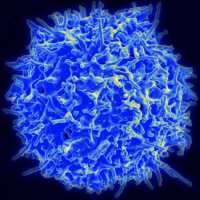The Cancer Survivors Network (CSN) is a peer support community for cancer patients, survivors, caregivers, families, and friends! CSN is a safe place to connect with others who share your interests and experiences.
Auto Stem Cell Transplant for MCL
Soon I will have to decide if I want to elect to do an Auto Stem Cell transplant for my Mantle Cell Lymphoma or just Rituxin maintenance. I am interested to hear any stories about your Stem Cell transplant experience and whether or not you would make the same choice. I am also interested in hearing if the ASCT was an option for you and you decided against it, and in retrospect, if you would make the same decision.
Thanks for your input and I hope everyone stays healthy(ish).
Comments
-
I liken maintenance to automobile maintenance: at a certain point, something will need to be changed or replaced. This could mean that the disease has relapsed or is progressing, and that a different maintenance drug might be needed. This of course opens the door of uncertainty. The plus of maintenance is that new drugs and therapies (even CAR-T) are rapidly developing and more effective/less toxic options may exist in the future when you need them.
I underwent a haploidentical transplant, with my son as donor. It has not been terribly easy, but my choices were transplant, or palliative care and hospice. Thus, the decision was very easily made, but ultimately more difficult to live with. Auto transplants avoid the specter of Graft-versus-Host-Disease (GvHD), which itself can be fatal. Auto transplants are generally tougher going into and easier coming out of than allogeneic transplants, as your marrow must be essentially destroyed and completely replaced by the transplanted cells. With anyresidual disease, this means that you will have no immune system to fight it until your cells are engrafted and maturing in the marrow. Everything can be a toss-up.
In allo transplants, it is acceptable to leave some marrow functioning, which provides a modicum of immune system during the transplant time frame. The donor cells normally replace your own cells over time, although many go on two have two different marrows side-by-side so to speak. All of this is avoided in an autologous transplant. What would sway me is the numbers regarding progression free survival, overall mortality and the development of co-morbidities. Remembrer also that if you undergo an auto ytransplant and relapse, new therapies of even an allogeneic transplant remain in the table.
An excellent resource is www.bmtinfonet.org/ as they cover all aspects of transplant, from preparation to long-term survival.
Discussion Boards
- All Discussion Boards
- 6 Cancer Survivors Network Information
- 6 Welcome to CSN
- 122.7K Cancer specific
- 2.8K Anal Cancer
- 457 Bladder Cancer
- 313 Bone Cancers
- 1.7K Brain Cancer
- 28.6K Breast Cancer
- 407 Childhood Cancers
- 28K Colorectal Cancer
- 4.6K Esophageal Cancer
- 1.2K Gynecological Cancers (other than ovarian and uterine)
- 13.1K Head and Neck Cancer
- 6.4K Kidney Cancer
- 685 Leukemia
- 805 Liver Cancer
- 4.2K Lung Cancer
- 5.1K Lymphoma (Hodgkin and Non-Hodgkin)
- 243 Multiple Myeloma
- 7.2K Ovarian Cancer
- 72 Pancreatic Cancer
- 494 Peritoneal Cancer
- 5.7K Prostate Cancer
- 1.2K Rare and Other Cancers
- 544 Sarcoma
- 744 Skin Cancer
- 662 Stomach Cancer
- 194 Testicular Cancer
- 1.5K Thyroid Cancer
- 5.9K Uterine/Endometrial Cancer
- 6.4K Lifestyle Discussion Boards
